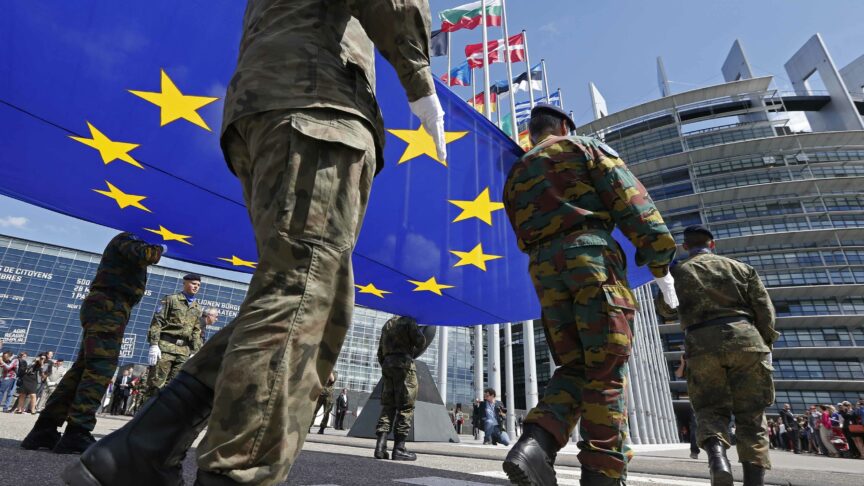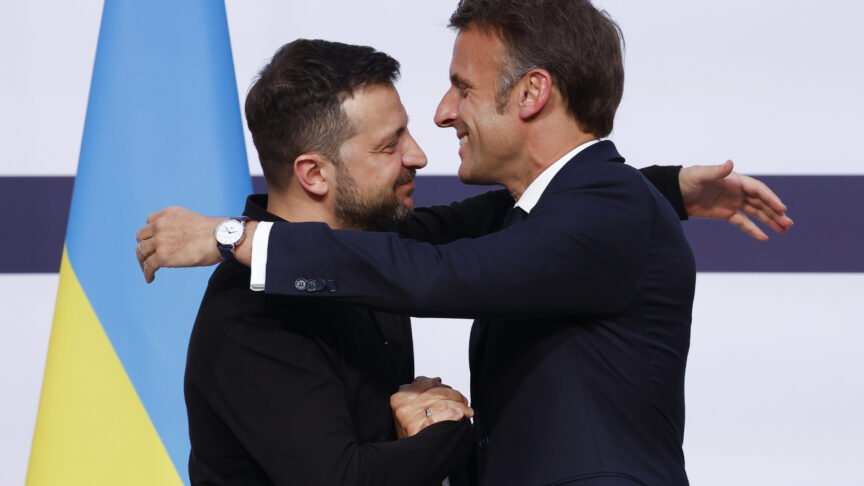The uprisings across the Arab world, the rollback of political freedoms in the countries of the former Soviet Union, popular protests in Moscow and debates over the rule of law in China – all testify to the complex picture for human rights and democracy at a time of rapid global change. It is very timely therefore that the European Union – which expresses a formal commitment to advance these values around the world in the Lisbon Treaty – has just completed a review and restatement of its human rights strategy.
Catherine Ashton, the EU High Representative for Foreign Policy, launched the review as one of her early initiatives after taking up her position. Ashton, who has said that human rights should be a “
silver thread” running through the EU’s foreign policy, delivered her own vision of a future EU strategy at the end of last year. Now, building on that vision, the Council of the EU has produced an important new document:
a Strategic Framework on Human Rights and Democracy and, as an annexe, an Action Plan for putting it into effect over the next two and a half years.
This new statement is particularly significant because it represents not only the view of Ashton and the European institutions, but also a commitment on behalf of the EU’s member states. It is only when European countries and the EU pull together in support of human rights and democracy that they are likely to achieve results; by contrast, for example, European attempts to support democracy in North Africa before the revolutions of 2011 went nowhere in large part because influential member states continued to regards stability and security as more important priorities. “Promoting and speaking out on human rights and democracy is a joint responsibility of the EU and its Member States,” the Strategic Framework affirms.
The document is a clear and welcome restatement of the EU’s determination to give human rights a prominent place in its foreign policy. It proclaims a strong belief in universal values and asserts that “throughout the world, women and men demand to live lives of liberty, dignity and security in open and democratic societies underpinned by human rights and the rule of law.” There are new challenges to the realization of human rights and democracy, but no reason to question their universal validity. The EU also recognizes in this statement that its credibility as a supporter of democracy and human rights depends on ensuring respect for the same rights at home.
Ambitiously, the EU promises in its new strategy to “place human rights at the centre of its relations with all third countries” and to “promote human rights in all areas of its external action without exception”, including “trade, investment, technology and telecommunications, Internet, energy, environmental, corporate social responsibility and development policy”. These claims should probably be taken as a piece of rhetorical exaggeration. Human rights will not in fact be the central factor in Europe’s relations with Azerbaijan, Saudi Arabia or China, and the current
European economic crisis undoubtedly weakens the EU’s ability to set the terms of its relationships with partners around the world more generally. It would be more realistic to hope at least that the EU looks for openings in each relationship to help advance some key priorities in human rights, democracy or the rule of law, and considers the human rights implications of its policies across the board.
More significant perhaps are the ways in which the new strategy seeks to respond to the changing global environment for supporting democracy and human rights. In an age marked by a wave of “people power” across the Middle East and more widely, the EU is rightly making an increased commitment to support freedom of expression as well as association and assembly, including in digital media; as the strategic framework says, “democracy cannot exist without these rights”. The EU promises to develop new guidelines on freedom of expression, as well as on freedom of belief. There is also an increased emphasis on supporting the fair and impartial administration of justice – another important way of promoting the separation of state and regime around the world.
Recognizing that advances in human rights will only come through working with the grain of different societies, the EU has already moved to tailor its strategies to local circumstances through the development of individual country strategies. The new document reinforces this ambition, promising to review the working of the country strategies (which had been criticised in some cases for lacking clear and well-judged objectives and benchmarks for evaluation) and make sure they are followed up on. More generally, there is an encouraging emphasis in the strategy and Action Plan to evaluate the impact of human rights policies; for instance the EU’s annual human rights report will now evaluate the EU’s progress in meeting its objectives as well as the human rights record of third countries. There is also a promise to develop indicators for human rights dialogues, a tool that the EU has come to use widely in many relationships without always seeming to have a clear vision of what it can be expected to achieve.
EU human rights policy will also have a new public face: a Special Representative (likely to be named this week) to back up Catherine Ashton’s statements on this subject and conduct human rights diplomacy around the world. The total package is an encouraging one, particularly in its focus on ensuring coherence between member states and the EU and across different policy areas, and in developing meaningful indicators to measure progress. It also appears to be based on a sensible vision of the current challenges and opportunities for promoting democracy and human rights in today’s world.
The test of the new strategy is likely to come in developing and keeping focus on a few realistic objectives in each relationship, avoiding the mirror-image traps that have bedevilled EU policy in the past: either setting unclear and unrealistic goals without a clear vision of how to achieve them, or deferring human rights objectives to a distant future while more hard-nosed interests are given exclusive priority in the short term.
The European Council on Foreign Relations does not take collective positions. ECFR publications only represent the views of their individual authors.


